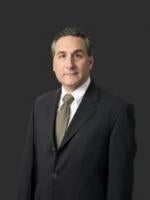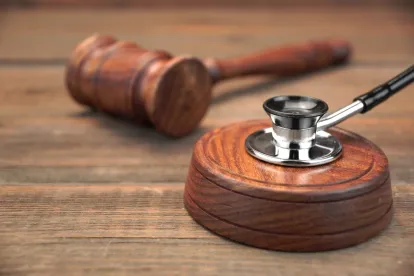Private Equity Group Accused of Actively Participating in Kickback Scheme Settles Health Care False Claims Act Suit for $21.36 Million
The United States Attorney’s Office for the Southern District of Florida announced on Sept. 19, 2019, that it settled a qui tam False Claims Act case in which a private equity firm was a named defendant. See United States ex rel. Medrano and Lopez v. Diabetic Care Rx LLC, d/b/a Patient Care America, et al., No. 15-CV-62617 (S.D. Fla.).
The case centered around an alleged kickback scheme to generate referrals of prescriptions for expensive pain creams, scar creams, and vitamins, regardless of patient need, which were reimbursed by TRICARE. At the heart of the case was a marketing endeavor rooted in a telemarketing arrangement. According to the complaint, the compounding pharmacy allegedly paid kickbacks to outside “marketers” to target military members and their families for prescriptions for compounded creams and vitamins, which were formulated to ensure the highest possible reimbursement from TRICARE. The marketers, in turn, paid telemedicine doctors who prescribed the creams and vitamins without seeing the patients, or in some cases, even speaking to them. The compounding pharmacy also jointly paid the copayments owed by patients referred by the marketer, without any verification of the patients’ financial needs, and then disguised the payments as coming from a sham charitable organization, which was affiliated with the marketer.
The government alleged the private equity firm that managed the pharmacy on behalf of its investors actively participated in the business such that it was deemed by the government to be an active participant. According to the government, the private equity firm knew of and agreed to the plan to pay outside marketers to generate the prescriptions and financed the kickback payments to the marketers.
The claim was brought by two former employees of the compounding company. According to their complaint, the private equity firm directed the compounding company to enter into pain management, which it viewed as highly profitable. Previously, the compounding pharmacy had focused on dialysis services. This business line became unprofitable due to changes in Medicare reimbursement. The relators contended that the private equity firm was seeking to sell the compounding company in five years and was looking for a quick turnaround of the company. A key factor in the private equity firm’s involvement was its active participation and direction of the health care business of the purchased pharmacy.
A Difference in Medical Judgment Is Not a False Claim
On Sept. 9, 2019, in a win for hospice and other health care providers, the Eleventh Circuit Court of Appeals ruled in United States v. Aseracare, Inc., --- F.3d --- (11th Cir. 2019) that a mere difference in medical judgment cannot rise to a false statement under the False Claims Act. This case involved hospice care and whether the defendant improperly certified patients as being terminally ill so as to meet the Medicare requirement for hospice services.
Under the hospice rules, to qualify for hospice care a physician must certify that the patient is terminally ill and is not expected to live more than six months. The government contended that the defendant’s care was not justified because its expert opined that the patients were not terminally ill. Defendant moved for summary judgment, arguing a “reasonable doctor” standard: if a “reasonable” physician could conclude that the patient was terminally ill, defendant maintained, there could not be a finding of falsity under the False Claims Act. The trial court initially refused to grant summary judgment but did certify the issue for appeal. The 11th Circuit declined to hear the appeal. The case was then bifurcated, with the first phase including only whether the government satisfied the falsity element of the FCA. The jury found that the defendant falsely submitted claims for 104 out of 123 patients.
Following phase one of the bifurcated trial, the trial court reconsidered, sua sponte, the defendant’s prior motion for summary judgment. It then held that a mere difference of opinion, without more, is not enough to show falsity under the FCA.
The 11th Circuit agreed and affirmed the district court’s grant of summary judgment. Looking at the standards for hospice eligibility, the circuit court concluded that CMS recognized that the decision of whether a patient is terminally ill is fraught with speculation. Accordingly, all that is required is that a physician reach the reasonable medical judgment that the patient is terminally ill based upon the entire record. Contrary to the government’s position, the eligibility requirements do not require that the cold medical record establish unequivocally to a physician unfamiliar with the patient that the patient is terminally ill. Responding to the government’s concern that its ruling would make it impossible to challenge any hospice claim, the court ruled that medical judgment can only be challenged when there is an objective falsehood. This can be established by showing, for example, that the physician never reviewed the record or familiarized himself with the patient’s condition, or did not subjectively believe that the patient was terminally ill before making such a certification. Finally, objective falsity can be established if no reasonable physician could have come to the same conclusion. A reasonable difference of medical opinion, however, can never rise to falsity under the FCA.
The 11th Circuit’s decision is significant in that many FCA claims involve allegations of lack of medical necessity. As medical necessity is often a subjective medical judgment, the Aseracare decision is a victory for medical providers in the FCA context.




 />i
/>i